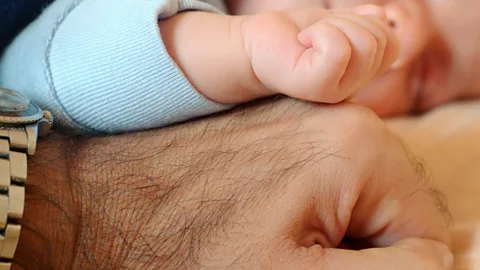Four ways paid paternity leave could boost family income
 Thinkstock
ThinkstockIrish dads will have even more reason to celebrate Father’s Day next year: in September, the country introduces two weeks of paid paternity leave.
They’ll join other countries like UK; Spain; Poland; Venezuela; New Zealand and Australia, according to International Labour Organisation data.
While the Republic lags many of its European counterparts by decades on the so-called ‘daddy quota’, (Iceland and Finland already offer more than a month of paid leave) it is by no means the slowest to give fathers’ paid time-off after the birth of a child. Irish dads will receive 230 euros ($258) per week from the government even the self-employed.
 Alamy
AlamyThere are only two countries in the world that don’t give mothers any paid time off when they have a child - Papua New Guinea and the US – but there are many more that offer no pay to support new dads.
Consequently, many men take holiday or unpaid annual leave to support a partner with a baby — and only a fraction take more than two weeks out.
For years the focus on getting more women in to the workplace has been around maternity leave, but many experts believe the answer could lie in focusing on total family income and working harder on paternity leave benefits.
To that end, BBC Capital considers four ways paternity leave advances could boost your family's bank balance.
Mummy may start getting paid more
There’s some evidence that better paternity leave policies could help close the wage gap between genders? Scandinavia, which offers some of the more generous policies in the world, may provide a few answers. A Swedish government study showed that for every month of parental leave taken by the father, the mother’s future annual salary can increase by almost 7%. Narrowing the gender wage gap has helped Sweden become the fourth-most gender-equal country in the world in terms of labour force participation, education, health and political empowerment among other measures.
 Thinkstock
ThinkstockBut for this to become more widespread, employer attitudes to working fathers will need to change even in countries with governments offering more generous options.
Recent research from the UK’s Institute of Leadership & Management underlined that encouraging the sharing of parental leave and responsibilities is a crucial step towards enabling more women to progress into senior, better-paid roles, “yet our research revealed cultural barriers are impeding the uptake of both two weeks statutory paternity leave and Additional Paternity Leave,” said ILM chief executive Charles Elvin.
Increases number of dads caregiving solo
A small study in Sweden showed that fathers working in large private companies who took longer leave were more involved in the care of their children right through to age 12. And any leave they did take was connected with fathers being more likely to look after those children on their own - rather than relying on paid childcare - while the mothers worked.
While research from both the US and UK found a significant connection between fathers taking leave around the birth and involvement in the care of their babies and young children later. For example, UK fathers who take formal leave are 25% more likely to change nappies and 19% more likely to feed their 8-12 month old babies and to get up when they wake at night. This was unrelated to their commitment to parenting before the child’s birth.
 Thinkstock
ThinkstockPositive health benefits could cut work absences
Good mental health in mothers can also mean they’re in a better position to return to work and earn. In the UK, dads taking paternity leave is strongly associated with mothers’ well-being three months after the birth and in France, research suggests that paternity leave can mean more infant care from fathers and consequently mums less likely to suffer from post-partum depression.
And in some lucky nations there’s actually a cash reward
Not only are some countries adopting a ‘use it or lose it’ system to encourage dads to take their paternity leave but others are even bringing in a bonus.
Germany, for example, incentivise uptake of leave by fathers not just through a ‘daddy quota’ but through a bonus payment to the whole family. In fact Germany has one of the most generous policies: men and women have equal rights to parental leave of 12 to 14 months on 65% of the individual parent's salary although still far fewer men take up the option than women.
